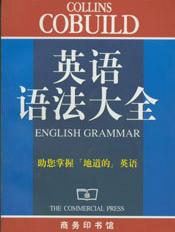牛津实用英语语法-第65章
按键盘上方向键 ← 或 → 可快速上下翻页,按键盘上的 Enter 键可回到本书目录页,按键盘上方向键 ↑ 可回到本页顶部!
————未阅读完?加入书签已便下次继续阅读!
anxiety牋牋牋牋 determination牋牋 plan牋牋牋牋牋牋牋?willingness
attempt牋牋牋牋 eagerness牋牋牋牋?promise牋牋牋牋牋 wish
decision牋牋牋?effort牋牋牋牋牋牋牋?refusal
例句如:
His ability to get on with people is his chief asset.
他与人融洽相处的能力是他的主要资本。
He made an attempt/effort to stand up.
他努力要站起来。
Failure to obey the regulations may result in disqualification.
若不遵守规章,就会被取消资格。
Their offer/plan/promise to rebuild the town was not taken seriously.
他们重新修建城镇的提议/计划/保证没有得到重视。
She was annoyed by his unwillingness to do his share of the work.
他不愿干他那一份工作,这使她很不高兴。
?
'Amber demo'
252 too,enough以及so…as 之后的不定式
?
A too+形容词/副词+不定式
1 too+形容词+不定式
(a)不定式可以是指句子的主语而言,此时它具有主动含义:
You are too young to understand.
你太年轻了没法懂得(这件事)。
He was too drunk to drive home.
他醉得太厉害了,没法开车回家。
(b)不定式也可以指动词的宾语而言,此时它具有被动的含义:
The plate was so hot that we couldn’t touch it.
盘子太烫,碰不得。
可以表示为:
The plate was too hot to touch.
盘子烫得没法碰。
注意:第一句中touch的宾语it在第二句的不定式结构里消失了,因为不定式虽然形式上是主动的,在含义上却是被动的。
有时,不定式的主动式或被动式都可用:
This parcel is too heavy to send/to be sent by post.
这个包裹太重了,不能邮寄。
但并不是在任何情况下以上两种形式都可用,学生因此最好一律使用不定式的主动式。
该结构中不定式之前可以加上for+名词/代词:
The case was too heavy(for a child) to carry.相当于:
The case was too heavy to be carried by a child.
箱子太重了,孩子搬不动。
(c)与此类似的情况是,不定式可以指介词的宾语而言:
The grass was so wet that we couldn’t sit on it.
草地湿得没法坐。
The grass was too wet(for us) to sit on.
草地太湿了,(我们)不能坐。
The light is so weak that we can’t read by it.
光线太暗了,我们无法看书。
The light is too weak to read by.
光线太暗,不能看书。
2 too+形容词+a+名词+不定式
He was too shrewd a businessman to accept the first offer.相当于:
As a businessman he was too shrewd to accept the first offer.
他是一个极为精明的生意人,不会接受第一次报价。
He is too experienced a conductor to mind what the critics say.相当于:
As a conductor he is too experienced to mind what the critics say.
他是一位经验非常丰富的指挥家,根本不会在乎评论家的意见。
如以上A1中那样,这里的不定式总是指主语而言。这里也可以用不定式的被动式:
He was too experienced a conductor to be worried by what the critics said.
他是一位经验极为丰富的指挥家,不至于为批评家们的意见犯愁。
3 too+副词+不定式
It is too soon(for me) to say whether the scheme will succeed or not.
现在要我来说计划能否成功还为时过早。
He spoke too quickly for me to understand.
他说得太快了,我听不懂。(这里for me是必要的。)
She works too slowly to be much use to me.
她干活太慢,对我不会有多大帮助。
B 形容词/副词+enough+不定式
1 形容词+enough+不定式
(a)如在too结构中一样,不定式可以指动词的主语而言:
She is old enough to travel by herself.
她已经到了可以自己出门旅行的年龄了。
He was tall enough to see over the heads of the other people.
他身材高得可以从别人头顶上看过去。
(b)这种结构还可以指动词的宾语而言:
The case is light enough for me to carry.相当于:
The case is so light that I can carry it.
这箱子很轻,我搬得动。
After a few minutes the coffee was cool enough(for us) to drink.
几分钟后,咖啡凉了一些,(我们)可以喝了。
(c)这种结构也可以指介词的宾语而言:
The ice was thick enough to walk on.
冰厚得上面可以走人。
The light was strong enough to read by.
光线亮得足可以看书。
2 enough既可作代词用,也可作形容词用:
He doesn’t earn enough(money) to live on.
他挣的钱不够过日子的。
We haven’t enough time to do it properly.
我们没有足够的时间把这件事做好。
She had enough sense to turn off the gas.
她还有点脑筋,知道关掉煤气。
have+enough+抽象名词结构常常可以用have+the+名词结构替代:
She had the sense to turn off the gas.
她还有点脑筋,知道关掉煤气。
He had the courage to admit his mistake.
他有勇气承认自己的错误。
I hadn’t the patience to listen to any more.
我没有耐心再听下去了。
但这里time之前的the可省略:
We haven’t(the)time to do it properly.
我们没有足够的时间把这件事做好。
3 副词+enough+不定式:
He didn’t jump high enough to win a prize.
他跳得不够高,没能得奖。
He spoke slowly enough for everyone to understand.
他说得很慢,每个人都听得懂。
C so+形容词+as+不定式:
He was so foolish as to leave his car unlocked.
他真傻,车都没有锁。
这种说法可用来代替上面B1中的enough结构,但必须注意He was foolish enough to leave his car unlocked的含义既可以是他实际这样做了,也可以是他可能这样做,即他傻到竟会不知道锁车的地步;而 He was so foolish as to leave则意指他实际上这样做了。
像上边讲的so…as结构的那种用法不常见,但它用为一种请求形式则是很常见的:
Would you be so good as to forward my letters?相当于:
Would you be good enough to forward my letters?
劳驾把我的信件转给我,好吗?
这两种形式之间并无含义上的差别,但千万不要遗漏as。(关于其他形容词+不定式结构参见第26节与第27节。)
?
'Amber demo'
253 位于句首或句末的不定式短语
?
某些特定的不定式短语既可位于句首,有时也可位于句末。不定式的这种作用与修饰全句的状语相似(参见第40节):
To be perfectly frank,you’re a bad driver.
非常坦率地说,你车开得不好。
To be honest, I just don’t like him.
说老实话,我就是不喜欢他。
To be fair(to him), he wasn’t entirely to blame.
说句公平话,这事不能都怪他一个人。
To cut a long story short, we said,‘No!’
长话短说吧,我们没有同意。
To tell you the truth,I’ve never met him./I’ve never met him, to tell
you the truth.
给你说真的,我从没见过他。
?
'Amber demo'
254 不定式的进行式
?
A 形式
to be+现在分词:
He seems to be following us.
他好像在跟着我们。
B 用法
不定式的进行式可用于:
1 助动词之后:
They’ll be wondering where you are.
他们会纳闷你在哪里。
—He may/might be watching TV.
—He can’t/couldn’t be watching TV.
—他可能在看电视。
—他不会在看电视。
There are no programmes today because of the strike.
由于罢工,今天没有节目。(否定的推论)
He must be ing by bus.
他一定是乘公共汽车来。(推论)
You shouldn’t be reading a novel.You should be reading a textbook.
现在你不该看小说,你应该看课本。
2 appear,happen,pretend,seem之后:
He appears/seems to be living in the area.相当于:
It appears/seems that he is living in the area.
(看来)他似乎就住在这一带。
He appeared/seemed to be living in the area.相当于:
It appeared/seemed that he was living in the area.
当时(看来)他似乎就住在那一带。
I happened to be standing next to him when he collapsed.相当于:
It happened that I was standing next to him when he collapsed.
他倒下的时候我恰巧站在他旁边。
He pretended to be looking for a book.相当于:
He pretended that he was looking for a book.
他假装在找书。
3 hope和promise之后,或agree,arrange,decide,determine/be determined,plan,undertake之后,但用于hope和promise后更常见:
I hope/hoped to be earning my living in a year’s time.相当于:
I hope I will/I hoped I would be earning…
我希望在一年内能自食其力。
determine/be determined,plan等词可代替上面句子中的hope,然而意思稍有不同:
I promised to be w






